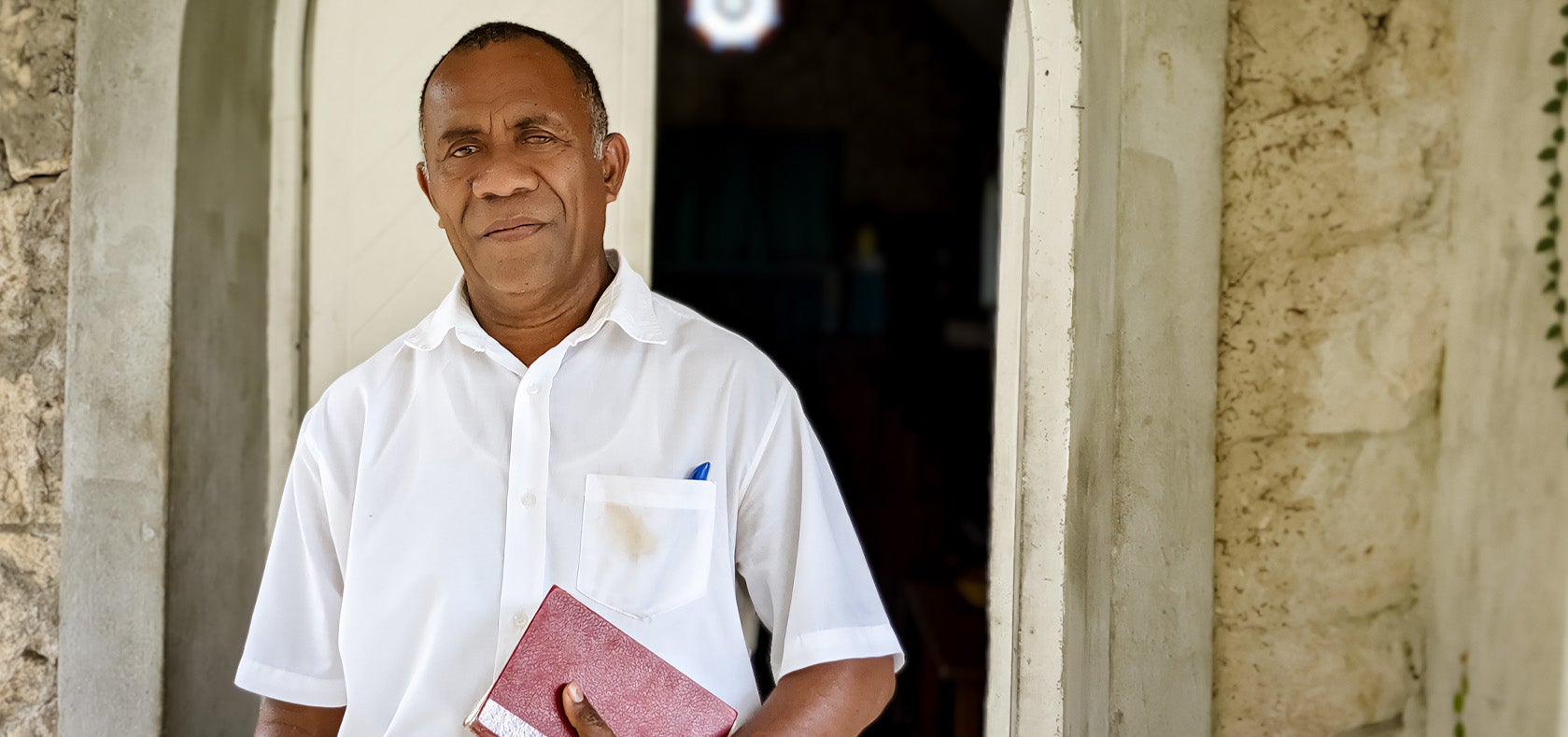In the words of Reverend Jone Tuiwaiwai: “There are things that God gave us that we cannot change, but our social roles is not one of them.”
Date:
Interviewed by: Miho Watanabe

Since 2018, the faith-based non-governmental organization House of Sarah has been piloting the project, Preventing Violence Against Women in Fiji’s Faith Settings initiative in three Christian communities in Fiji. House of Sarah is co-funded by the Pacific Partnership to End Violence Against Women and Girls (Pacific Partnership), which is funded primarily by the European Union, the Governments of Australia and of New Zealand, UN Women, and the Fiji Women’s Fund (also supported by the Australian Government). Through strategic partnerships with faith leaders, and those in the education, sports and employment sectors, UN Women has been working to prevent violence against women and girls in Fiji.
Reverend Jone Tuiwaiwai, 60, is a House of Sarah project officer and a pastor of St. Luke Anglican Church in Suva, Fiji.
I had everything [money] in my pocket, but my wife didn’t know that. I never showed my payslip to her when I worked [in the civil service]. I kept all the money to myself because I had the power to do so. Most of my money went to my friends, drinking grog [or kava, a traditional Fijian drink], and getting drunk. My family came second. That went on for years.
Then one day, I looked at my situation - how did it come to this? Owning nothing? All the money I earned, wasted. It was useless. It was wrong. So I decided to quit drinking and smoking. Quit all that nonsense.
After I quit, my friends no longer accepted me. They acted like enemies. It was hard to go through that, but I had to face it for the betterment of my life. When I decided to quit everything, I showed my wife the payslip. She cried. You know, for a long time, I’d been cheating her. We were married, but I prioritized my friends, drinking and smoking. It wasn’t fair. I felt very sad.
There are things God gave us that we cannot change, but our social roles are not one of them. We can change them. I made the decision to change, and people in my community saw me change my ways. They saw me quit smoking and drinking and prioritize my family instead. They see me now as a pastor preaching in a church. I changed for a happy family, for a good community, and to be a role model.
You see, we learn everything from what we see in our families and communities. In our normal setting, we are not equal. When we eat, men get a bigger portion. If there’s something left in the pot, women get that little portion. Even women took that as normal - that’s the way we were brought up. But in theology, we are all equal. In the eyes of God, both men and women are given power. We are all equal. Until I came to study, I did not know that.
In the Bible, there are verses like this, ‘Wives, submit to your husband.’ Husbands then say, ‘My wife must submit to me. She must listen to everything I say. I am the boss.’ It’s all misleading. The verse continues to say, ‘Husbands, love your wives, as Christ loved the church. He gave up his life for her.’ But they don’t see that part. The misconception of the verses gives more power to men. That’s why men use violence. On occasions like Break the Silence Sunday, I preach about the misconception of the Bible and the imbalance of power between men and women that brings violence.”